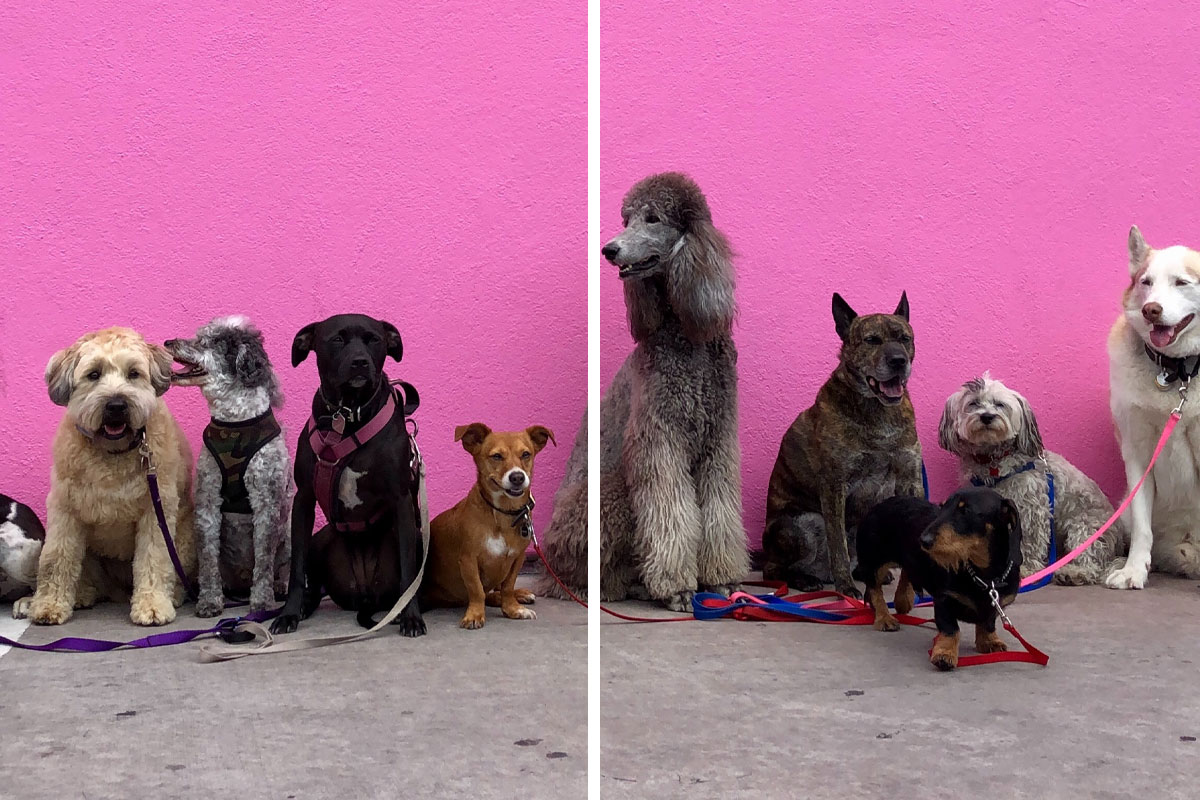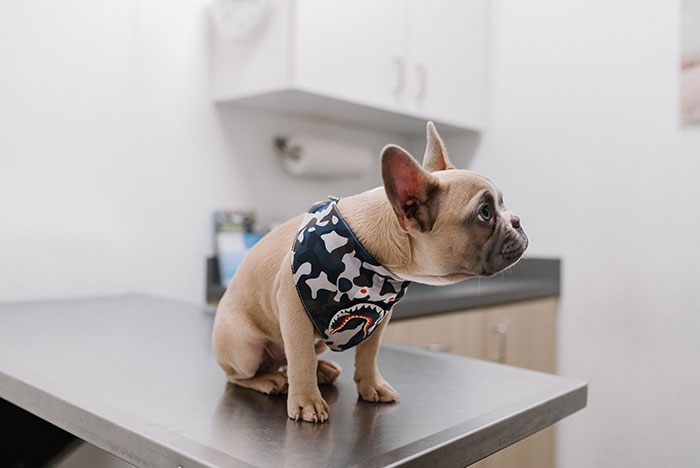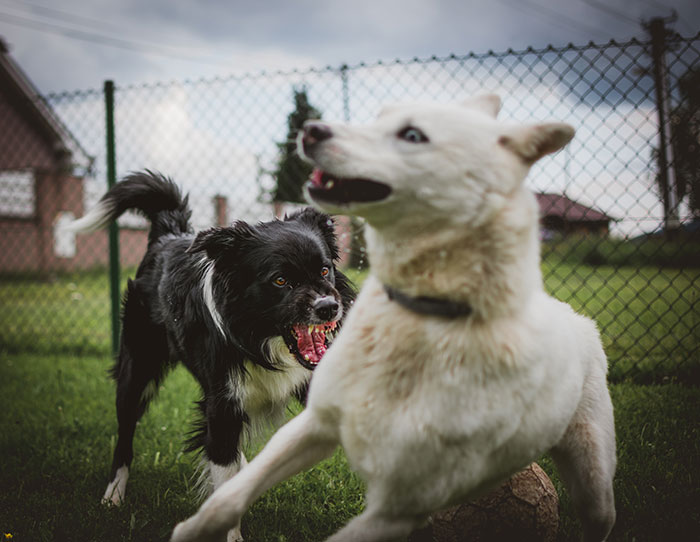Having one dog unsurprisingly, very often leads to more! If you’re considering getting another dog, you might be wondering what is an acceptable number of dogs to have.
Let’s take a look at what you need to think about in a multiple-pet household to be sure that every dog is happy and healthy.
Disclaimer: Please refer to the information in this article as a guide only as every dog is different. If you think that there could be something wrong with your pet, contact your veterinarian or dog behaviorist.
- Dogs need space in home and garden to accommodate their activity.
- Adding a dog means more vet visits and healthcare-related expenses.
- Dog's age, breed, character, gender, health affect household harmony.
- Signs of trouble: changed behaviors, fighting, or health problems.
The information provided herein is for informational purposes only. Please refer to our disclaimer for more details..
Things to consider
In this section, we’ll go through the points you should consider if you’re wondering whether it’s a good idea to add another member to your pack.
Time
If you already have one or two dogs, then you probably have a pretty good idea of how much time it takes to care for their every need. Having 2 dogs doesn’t necessarily double the time you need in terms of their care, as some things can be done at the same time (such as walking).
However, it’s good to be aware that each dog in the household will always need their allocation of individual attention time for things such as vet check-ups, and daily checking from you.
The size of your home and garden
Image credits: 825545.
Dogs require a certain amount of space, both in the home and outside, and can also be influenced by their size. Dogs need a special area for resting in their beds, moving around, and exercising outside. If possible, these spaces should not overlap dramatically with other pets.
What we’re saying is, that it’s okay for multiple dogs to share a garden, if it’s big enough to ensure that they are all able to play without getting in each other’s way.
When it comes to sleeping, sometimes pets enjoy sleeping in the same place together, however, it’s always a good idea to make sure that they have their own designated bed.
Veterinary Attention
Image credits: Karsten Winegeart.
Depending on the number of dogs, and the method of transport you use to visit your veterinarian, having many pets, will also mean more time and money spent at the vet.
For some things, such as vaccinations, your veterinarian might allow you to bring several dogs at the same time, however, for other procedures, they’ll need to be brought in separately.
Having another dog also requires an investment of money needed to pay for veterinary care such as:
- Insurance.
- Vaccinations.
- Health-check ups.
- Parasite treatments.
- Dental check-ups and procedures.
Pup specificities
Image credits: Tadeusz Lakota.
Just like us, dogs have their characters and personalities! If you’re thinking about having more than one dog in the house, it’s good to think about whether each canine would get along well together.
This can be affected by a range of factors such as:
- Age – some senior dogs might not enjoy sharing a home with young dogs or puppies.
- Breed – some dog breeds are more active, noisy, or playful than other breeds and may not be the best mix. Similarly, if you’re hoping to walk them at the same time, a toy breed such as a chihuahua is unlikely to keep up with a giant breed like a great Dane.
- Character – a quiet or calm dog, may not enjoy the presence of a very active or loud dog.
- Gender – if you have multiple dogs of different genders, you may want to consider spaying or neutering them so that they don’t have puppies.
- Health condition – if one of the dogs has a health condition, it’s good to think about whether adding another pet would be detrimental to their health. This largely depends on the condition, if you’re not sure, it’s best to ask your vet.
Cost
Before you get a new dog, it’s always best to be sure that you are financially able to cater to them for the duration of their life. This includes all the veterinary care, food, care supplies, toys, insurance, and pet sitter services they may need during their lifetime.
Regardless of the number of dogs you have, taking out health insurance for your pet is always a good idea if possible. Sadly, no matter how well you look after your pet, somethings complicated health-related situations occur. By having insurance, you can be sure that your pet will get the veterinary care they need, without needing to worry about the cost.
Signs multiple dogs could be a problem
If you’ve already got your extra dog and aren’t sure whether it’s a problem, we’ve made a list of things you can look for below:
- Changes in the eating, drinking, or general behavior of one of the dogs.
- Fighting or abnormal aggressive behavior.
- Weight loss.
- Excessive barking or growling.
- Injuries such as bites or scratches.
FAQ
We’ll now go through some answers to frequently asked questions surrounding the topic of owning multiple dogs.
How many dogs can live in a household?
The number of dogs that can live in a household, is largely dependent on the size of the house and the garden. Each dog must have plenty of space to meet all their needs both inside, and outside.
We’d like to emphasize, that no matter how big your house is, it’s extremely important to consider the other factors involved in having a lot of dogs such as time, money, medicinal attention, and whether they will be a match in terms of their specificities.
What is the best gender combination for 3 dogs?
The answer to this question depends on the dog’s character and whether they are spayed or castrated. then you might want to think about taking them to the vet for this procedure unless you want puppies.
How many dogs does the average household have?
The latest report by the American Veterinary Medical Association in 2017-2018 states that in the 38.4% of households owning a dog, there were on average 1.6 dogs per household. Sadly there is a lack of more up-to-date data on this topic.
What happens if you have too many dogs in your house?
Having too many dogs in your house is sadly problematic for everyone involved, we’ve listed some examples below:
- Not enough space – your home can become too crowded, which means your pets won’t have the space they need to perform their daily activities.
- Not enough time – if you have too many dogs you might not have enough time to care for them.
- Neighbor complaints – neighbors may complain if have too many dogs and they bark a lot.
- Financial problems – having dogs is expensive, and you might not be able to buy everything you need for your pet.
- Fighting – if your dogs don’t get on well, or if they don’t have enough space they may start fighting and could get some injuries as a result.
- Health conditions – due to a combination of the above reasons.
Conclusion
We hope you found it interesting to read about how many dogs you can keep in a household. The answer to the question ‘How many dogs in one household?’ depends on a few factors which we hope you enjoyed reading about.
The most important thing to remember is always to ensure that all needs in terms of food, exercise, and veterinary care of every dog in the household are always met.
104views
Share on FacebookHow about finding the right balance for the many dog related articles you keep posting?
How about finding the right balance for the many dog related articles you keep posting?







8
4